
September 2025 Conference Presentations
Chattanooga Autism Conference Agenda
We’re thrilled to share that our presentation proposals are officially complete, and the conference agenda is now live! All sessions and speakers have been selected, and we can’t wait for you to see the incredible lineup we have planned. While it’s always possible that small changes could occur, the agenda is now in its final form.
A huge thank-you to everyone who submitted proposals! your expertise and passion make this conference possible. We’re looking forward to an inspiring, engaging event!
Click the links below to jump to a specific track:
Early Childhood

8:30am - 9:30am
How Identifying Social Visual Engagement Differences Can Guide Early Intervention
Dr. Cheryl Klaiman, PhD
This presentation will discuss diagnostic indicators of autism and use of tools that can help us better understand a child’s strengths and vulnerabilities. What are the earliest symptoms that might give us better understanding of earliest behaviors that might be able to provide earlier interventions to help better support children in their earliest developmental stages.
9:45am - 10:45am
Meeting The Child Where They Are, Following Their Lead
Amy Howard
"Regard for student perspective" means valuing and considering students' individual viewpoints, interests, and ideas in the learning environment." In simpler terms, we're following the leader but this time, the children are taking the lead. We can't always expect children to learn in the same ways, at the same pace, or in the same styles. Today we'll be taking a deep dive into what a regard for student perspective looks like in action and why it's an important skill not only for educators but for children to learn to lead as well.
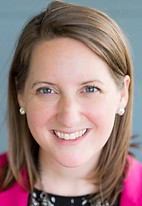
11:00am - 12:00am
Tools & Teammates Together for FUN!
Claire Stockman, MME, Ed.S
Join Claire Stockman, educator, VP of Education at Creative Discovery Museum, and mom of a neurodivergent kiddo, to explore behavior as communication and ways to empower kids with tools and teammates for various situations. She'll share some of the strategies that Creative Discovery Museum (Chattanooga, TN) uses to ensure that all learners can engage in FUN
Presentation : Click HERE

1:30pm - 2:30pm
Supporting AAC users: A confidence guide for parents/caregivers and the support team
Sidney Sherman, M.S., CCC-SLP
My presentation would discuss how to support AAC users across environments and settings. Often times people are so intimidated by AAC that carryover lacks. I want people to walk away feeling confident and comfortable supporting AAC users.
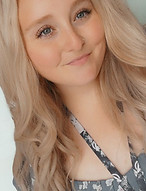
2:45pm - 3:45pm
Enhancing Autonomy: Embracing the Child-Dignified and Whole-Human Approach
Kelleen Covington, MS, BCBA, LBA
My presentation will address the old ideals of ABA and call families, educators, and practitioners to action to re-evaluate their methods. I plan to discuss the importance of client-dignified and trauma-informed care in the field and the impact it has had on my clients and their families.
K - 12 Educators
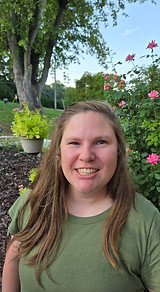
8:30am - 9:30am
Meeting The Child Where They Are, Following Their Lead
Amy Howard
"Regard for student perspective" means valuing and considering students' individual viewpoints, interests, and ideas in the learning environment." In simpler terms, we're following the leader but this time, the children are taking the lead. We can't always expect children to learn in the same ways, at the same pace, or in the same styles. Today we'll be taking a deep dive into what a regard for student perspective looks like in action and why it's an important skill not only for educators but for children to learn to lead as well.

9:45am - 10:45am
Leading Loud: Navigating Life as a Neurodivergent Adult with Power and Purpose
Zakiya Mabery
This session explores lived experiences of neurodivergent adults navigating professional spaces, family dynamics, and systems that weren’t built for us. Through storytelling and strategy, attendees will gain tools to reframe internalized ableism, advocate for accommodations, and build inclusive communities that value all brains.

11:00am - 12:00am
Teach How They Learn: Designing a Flexible Program Rachel Good, M.Ed., Kaitlin Wilder, BCBA
The the essential factor to make education affirming and accessible to all learners is not one more strategy or tool, but a paradigm shift . The Discovery Learning Academy has build an effective, inclusive learning environment that focuses on individual learning styles while also including all students in the process as a class. They will describe the model and highlight aspects that educators can work on adapting in their schools. The approach requires a large shift away from static, one-size-fits all educational curriculums, and buy-in from all involved.
Attendees will leave with a new awareness of mindset shifts they can make as educators that will bring flexibility to their classroom/program/school. The presenters will teach about the benefits of a learner-first approach over a curriculum first approach. You will see how neurodiverse learners can thrive in these kinds of educational settings.
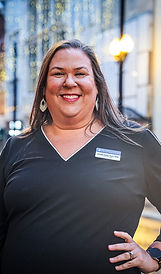
1:30pm - 2:30pm
Beyond the Mask: Improving Early Identification of Autism in Females
Amanda Hardin, PsyD, NCSP
This presentation explores recent research and strategies aimed at improving the early identification of autism in females, who are often underdiagnosed due to gender-based biases and subtle symptom presentation. It highlights emerging diagnostic tools, key behavioral indicators, and strategies for addressing current gaps in screening practices. The goal is to support earlier, more accurate diagnoses and improve outcomes for girls and women on the autism spectrum.
Stewart Lee BS, MS, PhD (ABD)
This session explores the many unseen demands that contribute to cognitive overload for autistic students—masking, code-switching, social decoding, sensory regulation, and more. Educators and parents often lack lived experience to fully grasp this daily burden. By unpacking how traditional school environments amplify this load, attendees will gain new insight into how to support autistic learners beyond surface-level empathy and move toward deeper, more informed inclusion.
Presentation: Click HERE

2:45pm - 3:45pm
Bridging the Gap: The Limits of Allistic Understanding and the Reality of Autistic Cognitive Load in Education
Parents Track 1

8:30am - 9:30am
Helping Your Child Manage Their Feelings
Tiffany Long- Autism Mom, Advocate, and Life Coach
Helping our children manage their emotions takes work. It doesn't happen overnight. This presentation will help you learn tools to support your child (and yourself) to process emotions in a healthy way. You and your child will begin to experience peace with the emotions, and you can be confident knowing you are molding emotionally healthy human beings.
Presentation: Click HERE
9:45am - 10:45am
Guides, Not Guards: Balancing Independence and Support for Your Autistic Adult Child
Amanda Platner PsyD, ABPP & Gabriela Sherrod PhD
Parenting autistic adults presents unique challenges, including encouraging independence while providing essential, developmentally appropriate support. This session provides strategies for letting go of the reins, embracing natural consequences, and using your adult child's interests to promote engagement and goal setting. We’ll explore how to support rather than enable, and how to help your adult child build a team of collateral contacts leading towards autonomy and their desired quality of life.
This session is designed for parents of children with Autism who are interested in understanding the complexities of transitioning to adulthood and navigating the educational landscape. By discussing educational milestones (educational approaches and interventions), the importance of advocacy, and practical strategies for a successful transition (post-secondary opportunities, vocational training, employment, independent living), we hope to foster a supportive community (connections with local resources, community programs) for families navigating similar paths. It not only aims to provide valuable insights but also to create a space for parents to connect, share, and learn from one another.

11:00am - 12:00am
Charting the Course: A Parent's Guide to Navigating High School and Beyond
LaTonya Winfrey, M.Ed., LPSC


1:30pm - 2:30pm
What can I do to help my autistic child now?
Sarena Cambrea BCBA, LBA & Cory Cannady, DBH, BCBA, LBA, IBA
This presentation will focus on practical skills for parents to implement that will help their autistic child. These skills will be taken from the science of ABA and presented as realistic tools parents can use while they wait for services, seek guidance, or manage daily behaviors.
Presentation: Click HERE
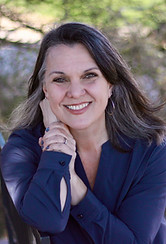
2:45pm - 3:45pm
Not Autistic Enough: Bridging the Gap
Micki Benoit, MA, CCC-SLP
Many neurodivergent teens and young adults are caught between two worlds: knowing social “rules” and being able to apply them in the “real world”. This interactive session introduces the EDGE Approach, an intervention approach that has proven to be helpful for parents and professionals alike. Attendees will leave better equipped to understand and help a demographic of people who are vastly underserved, and in desperate need (and want) of intervention.
Parents Track 2

8:30am - 9:30am
What does it mean to take a holistic developmental approach?
Amy Bodkin, EdS
Historically, the medical model of symptom identification and treatment has guided care for our children. However, our children are not a collection of symptoms. They are individuals that are developing along a trajectory unique to them. Taking a holistic developmental approach allows us to look at all aspects of our children’s development, especially the development of sensory and cognitive processes, to create an approach to support tailored to their needs!
9:45am - 10:45am
Avoiding Burnout: Parent Self-Care Through the Lens of Behavior Analysis
Laine Collins, BCBA, LBA
This presentation empowers parents of children with autism to prioritize their own well-being using principles of Applied Behavior Analysis. Attendees will learn practical, evidence-based strategies to build self-care routines, manage stress, and reduce burnout. By applying reinforcement, shaping, and self-monitoring techniques to their own behavior, parents can improve their quality of life while modeling healthy coping skills for their children. No guilt—just sustainable self-care through ABA.
11:00am - 12:00am
Legal Landscape: What you need to know
John G. Huisman, JD
Current discussion of various legal topics parents, advocates, and special needs individuals need to know about including trusts, powers of attorney, guardianship and conservatorship, and disability benefits.
1:30pm - 2:30pm
Regional Programs for Autistic Adults: Existing and Needed - Panel
Billy Worsham, Bobbi Love, and Shannon Hart
Our region has some programs for autistic adults who need more support. We also have gaps. Our panelists will discuss Trousdale School, the adult day program at Signal Centers, and the Real Life program in Cleveland. Then we’ll discuss what kinds of programs and services are missing from our region and ask the audience to participate in describing the needs of autistic adults and ideas and solutions
2:45pm - 3:45pm
The Other Autism
Rachel Hill (B.s. Exceptional Education K-12), Corey Bayless RN
A parent-led panel offering an open Q&A on raising teens with autism and co-occurring diagnoses. We’ll share personal experiences, available services, and insights into the future for families of significantly impaired and non-typically presenting children with disabilities.
Autistic Adults

8:30am - 9:30am
Discovering You: A Compassionate Guide for Autistic Adults to Explore Masking and Begin Unmasking
Emily Walsh, LPC-A
This presentation is for autistic adults who would like to explore how lifelong masking—suppressing autistic traits to conform—undermines mental health and a sense of self. Learn gentle, practical steps to begin unmasking on your terms: recognize energy depletion, find safe spaces, and cultivate self‑compassion to reclaim authenticity.

9:45am - 10:45am
Sensory Sensitivities: Practical Coping Strategies for Adults
Nicole Sanders
This presentation explores sensory sensitivities experienced by autistic adults, highlighting common triggers, real-life impacts, and practical coping strategies. Attendees will gain a deeper understanding of sensory processing differences and how to create more supportive environments. Included topics: overstimulation, self-advocacy, accommodations, and sensory friendly tools. This session will be empowering for individuals and professionals alike to foster greater awareness, inclusion, and quality of life for autistic adults.
11:00am - 12:00am
Money Basics for Life: Managing Your Money: WHEN YOUR MONEY GOES FAR, SO DO YOU.
Schiela Peña, Disability Services and Outreach Manager & Yolanda Hollingsworth, Community Relations Officer
Being financially responsible involves planning and having a strategy in place to reach your financial goals. Learn the value of money, needs vs. wants and how to develop new spending and savings habits.
In this seminar you’ll learn how to:
• Set financial goals through creating spending and savings plans
• Get more out of your paycheck
• Find fun and inexpensive activities

1:30pm - 2:30pm
Beyond Exhausted: Understanding, Recognizing, and Recovering from Autistic Burnout
Christopher J. Quarto, Ph.D., PLLC
Autistic burnout is real and emotionally exhausting. This presentation will explore what burnout is, how to spot it, and why it happens. We’ll unpack the hidden costs of masking, stress, and unmet needs, then dive into six practical, neuroaffirming tools to help you recover and protect your energy. Leave feeling understood and equipped with strategies to care for yourself just as you are, without needing to change who you are!

2:45pm - 3:45pm
Your Existence is Revolutionary: Redefining Autism Through Late-Diagnosed Autistic Joy
Carl A. Frizell, DMSc, MSPAS, PA-C, and Sheena D. Brown, PhD, MSCR
Drawing from our lived experiences as late-diagnosed autistic adults with diverse intersecting identities, this presentation explores paths to joy after experiencing harm in neurotypical environments. Through an intersectional lens, we'll examine how late diagnosis enriches our understanding of autism's true diversity, celebrating authentic autistic existence across all identities, cultures, and experiences.